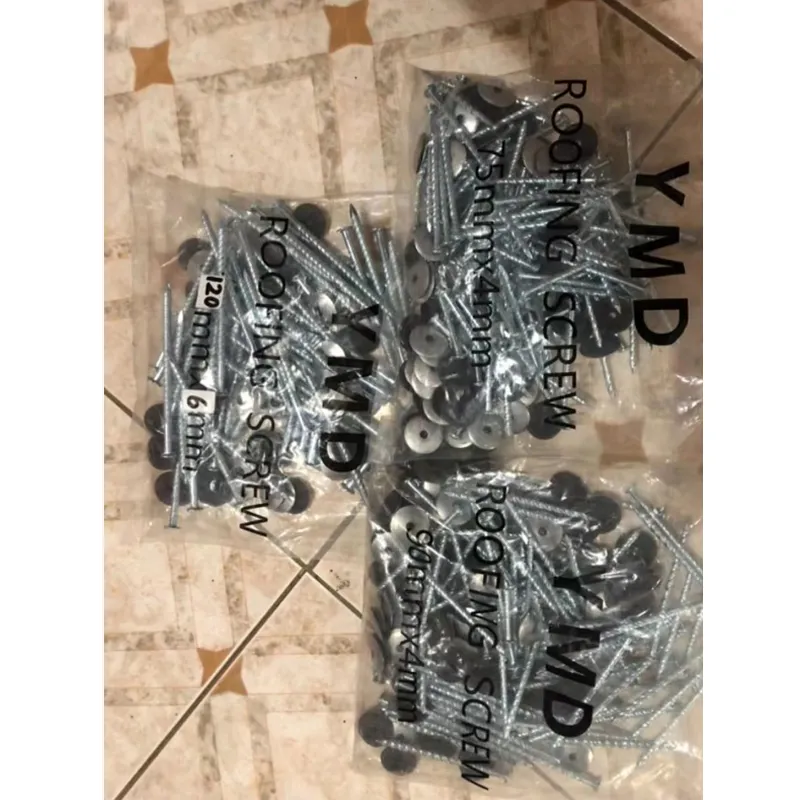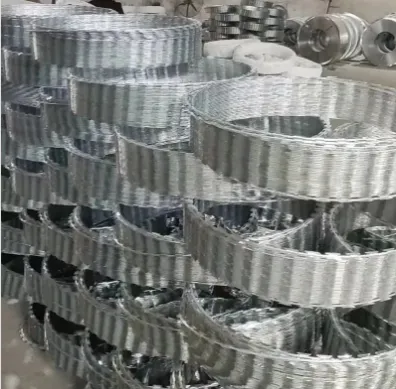Juin . 05, 2025 21:39 Back to list
Affordable Welded Wire Mesh Fencing Durable Security Solution
- Understanding welded wire mesh fencing
fundamentals - Technical advantages over competing solutions
- Market price comparison analysis
- Leading manufacturer comparison charts
- Custom design solutions and configurations
- Real-world application case studies
- Long-term value considerations

(welded wire mesh fencing)
Welded Wire Mesh Fencing: The Structural Backbone of Modern Security
Welded wire mesh fencing forms the invisible shield protecting commercial, industrial, and residential properties worldwide. Unlike basic chain link alternatives, its cross-point welding creates rigid panels resistant to spreading or distortion. Manufacturing involves precision electric resistance welding of steel wire at each intersection point. This creates consistent openings ranging from 50x50mm (2"x2") to larger configurations. Galvanization processes protect against corrosion, with Class 3 galvanizing (Z600 coating) offering 15-20 years service in coastal environments. Industry adoption has accelerated with warehouse security requirements growing 47% since 2020 according to IMSC Group research.
Engineering Superiority Over Traditional Fencing
The structural integrity of welded mesh outperforms woven alternatives. Tensile strength exceeds 700 MPa in premium galvanized steel specimens tested to ISO 6892 standards. Diagonal brace points prevent parallelogram distortion under pressure – a critical weakness in chain link systems. Installation efficiency proves remarkable: contractors complete projects 35% faster compared to palisade fencing, significantly reducing labor costs. Critical maintenance concerns virtually disappear with hot-dip galvanized variants requiring zero painting or anti-rust treatments for 20+ years. Security certifications include CPNI LPS1175 SR3 ratings demonstrating resistance to sustained attack using heavy tools.
Cost Variables Impacting Welded Mesh Fencing Prices
Welded mesh fencing prices vary significantly based on specifications and project scale. Wire gauge represents the primary cost variable: 3mm thick options run $15.50/linear foot while 5mm industrial-grade meshes reach $28.80/linear foot. Galvanization levels alter pricing dramatically, with G90 coatings ($19.20/LF) costing 25% less than G200 marine-grade solutions ($24/LF). High-volume commercial projects over 500 linear feet reduce per-foot pricing by 14-18% through material discounts. Post-sleeving foundations (required for 2.4m+ heights) contribute 30% of installation costs. Recent U.S. tariffs on imported steel have increased raw material costs by 9% year-over-year, though domestic mills now command 67% of the North American market.
Welded Wire Mesh Fencing: Top Manufacturer Comparison
| Manufacturer | Panel Options | Mesh Options | Corrosion Warranty | Pricing (per LF) |
|---|---|---|---|---|
| Betafence Global | Standard and curved | 50x50mm to 100x100mm | 25 years | $22.40 - $35.75 |
| Anping Security Mesh | Fixed panels only | 50x50mm standard | 15 years | $14.90 - $27.30 |
| Direct Metals® | Standard and angled | 50x50mm to 75x75mm | 20 years | $18.75 - $31.25 |
| Came Barriers | Custom shapes | 25x25mm to 100x100mm | 30 years | $26.50 - $40.20 |
European manufacturers typically offer superior anti-corrosion warranties due to strict EN ISO 1461 standards requiring minimum zinc coatings of 85 microns. Aluminum alloy options command premium pricing at $32-48/LF but offer indefinite corrosion resistance in chemical processing plants.
Custom Welded Mesh Solutions for Complex Requirements
Beyond standard 50x50mm configurations, custom fabrication addresses unique site conditions. Prison security applications utilize 8mm wire at 30x30mm openings ($38.75/LF), while agricultural fencing employs hex-coated 4mm wire at 150x150mm spacing ($17.25/LF). Anti-climb features include 30° top-curve segments reducing scaling attempts by 83%. Data center installations increasingly adopt Faraday cage meshing (woven copper strands integrated into perimeter barriers) to block electromagnetic signals. Specialized manufacturers produce curved sections matching property lines within 5° precision tolerances. Custom PVC color coating (RAL code matching) adds 12-18% to material costs but enables architectural integration with corporate branding schemes.
Proven Performance in High-Security Applications
The Manchester Airport expansion utilized 4.2km of Vanti® CPNI-certified mesh fencing with tamper-proof fixing systems, resisting intrusion attempts during 18-month construction. Florida power plants specify marine-grade 316 stainless variants (minimum 5mm wire) to withstand hurricane-force winds and salt spray. Correctional facilities report 91% reduction in breach attempts after upgrading to 75x75x5mm high-tensile welded barriers integrated with pressure sensors. Agricultural applications demonstrate 23-year service life in Midwest USDA reports, exceeding traditional wood fencing longevity by 400%. Slope installations along Interstate 80 in Pennsylvania utilized flexible connections allowing 12° terrain adaptation without compromising structural integrity.
Why Welded Mesh Fencing Delivers Unmatched Lifecycle Value
Lifecycle cost analysis confirms welded wire mesh fencing delivers 35-year service with minimal maintenance versus chain link's 15-year replacement cycle. The initial price premium reduces to cost parity after 7 years and generates 200% ROI over three decades. This permanent solution prevents recurring replacement expenses while providing consistent protection with guaranteed performance. Structural warranties now extend beyond surface protection to include weld integrity guarantees from premium manufacturers. As perimeter security requirements intensify globally, welded mesh installations continue displacing inferior fencing solutions through demonstrable longevity and uncompromising security performance.

(welded wire mesh fencing)
FAQS on welded wire mesh fencing
Q: What is welded wire mesh fencing?
A: Welded wire mesh fencing consists of steel wires fused at intersections to form a rigid grid. It's widely used for security, animal enclosures, and garden protection. The durable galvanized or PVC-coated finish ensures longevity against corrosion.
Q: What factors affect welded mesh fencing prices?
A: Prices depend on material thickness (gauge), coating type (galvanized vs. vinyl), panel dimensions, and quantity ordered. Additional costs include gates, installation labor, and customization for uneven terrain. Bulk purchases typically reduce per-unit costs.
Q: What does 50x50 mean in welded mesh fencing specifications?
A: 50x50 denotes mesh size: 50mm horizontal x 50mm vertical openings between wires. This standardized grid offers balance for perimeter security while allowing visibility. Common wire gauges for this mesh are 3mm-5mm.
Q: Where is welded wire mesh fencing typically installed?
A: It's ideal for industrial sites, schools, residential boundaries, and agricultural areas needing sturdy barriers. The design deters intruders while containing pets/livestock. Sports facilities also use it for ball-stop applications around courts.
Q: How do you maintain welded wire mesh fencing?
A: Inspect annually for rust spots; touch up with zinc spray if galvanized. Clear vegetation trapped in the mesh to prevent moisture buildup. For vinyl-coated versions, clean with mild detergent and soft brush to preserve color.
-
The Power of Iron Wire: A Versatile Solution for Multiple Applications
NewsJun.19,2025
-
Reliable Hydraulic Fittings for Optimal Performance
NewsJun.19,2025
-
Quality Roofing Nails for Every Project
NewsJun.19,2025
-
Hexagonal Wire Mesh: Versatile and Durable Solutions for Every Project
NewsJun.19,2025
-
Enhancing Security with Barbed Wire Solutions
NewsJun.19,2025
-
Binding Wire: The Essential Material for a Variety of Applications
NewsJun.19,2025









